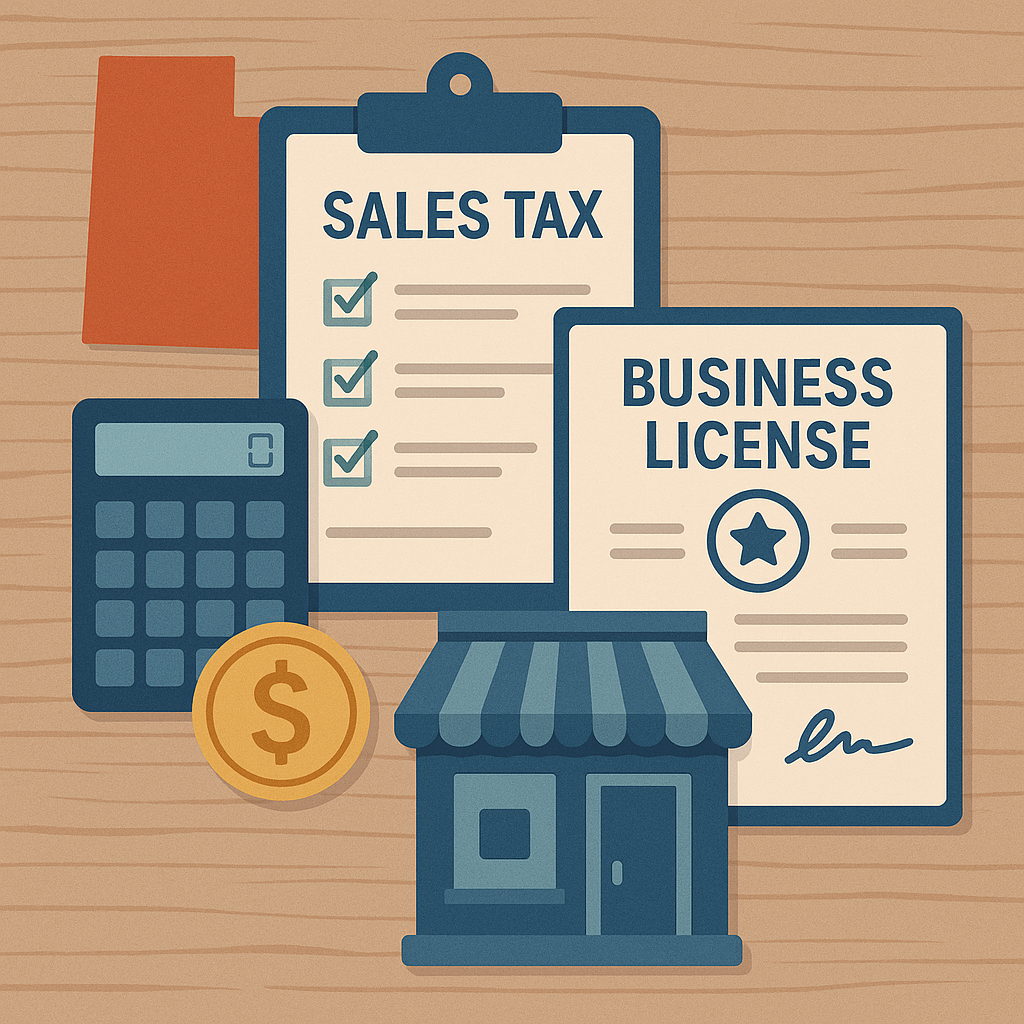Utah Sales Tax & Business Licenses What Small Businesses Must Do
A plain-English roadmap to nexus, permits, rates, filings, deadlines, and common pitfalls
Utah Law Explained takes out the guesswork so you know when to collect sales tax and which licenses you need to legally operate in Utah. Most businesses must obtain a sales tax license before collecting a single dollar from customers, and filings must be accurate and on time to avoid penalties.
This guide gives you a Utah-specific plan: who needs to collect, how to get your sales tax permit, how to charge the right rate, how to file and remit, and which mistakes to avoid. By the end, you’ll have a step-by-step checklist and a filing calendar you can actually follow.
Do You Need to Collect? (Nexus in Utah)
“Nexus” is the legal connection that requires your business to collect and remit Utah sales tax. If any of the following apply, you must register for a Utah sales tax license before selling taxable goods or services.
Physical Presence
You operate a store, office, warehouse, or other location in Utah.
People in Utah
You employ workers or independent contractors in Utah.
Economic Nexus
You exceed $100,000 in annual sales to Utah customers, even without a physical presence.
Registration Triggered
If any condition applies, register with the Utah State Tax Commission for a sales tax license.
Get Your Utah Sales Tax Permit
Apply through the Utah OneStop Business Registration portal to legally collect sales tax. Keep your license on file at your business once issued.
Checklist to register: Form your entity with the Utah Division of Corporations, get an EIN from the IRS, confirm city/county business licensing (if required), submit your sales tax application online, then retain/display your license.
Collecting, Remitting & Helpful Tools
Charge the Right Rate
Keep Clean Records
File & Remit on Time
Automation & SUTS
Filing Cadence & Calendar
Monthly Filers
If you collect more than $1,000/month, your return is due the last day of the following month.
Quarterly Filers
If you collect $500–$1,000/month, returns are due April 30, July 31, Oct 31, Jan 31.
Annual Filers
If you collect <$500/month, the annual return is due January 31 of the following year.
Practical Tip
Put deadlines on a shared calendar and set two reminders: a prep reminder one week before, and a file-day reminder.
Avoid the Common Mistakes
Big gotchas: registering after you collect tax, charging the wrong city/county rate, missing due dates, keeping poor records, or confusing sales tax with income tax.
Talk to a Utah Business AttorneyVideo & Social Learning Hub
YouTube Resources
Key Takeaways
Nexus can be physical presence, people in Utah, or economic nexus ($100k+). If triggered, you must register.
Apply online for your Utah sales tax license, then charge the correct local rate and keep solid records.
File monthly, quarterly, or annually based on volume—and automate with SUTS or accounting software.
This page is legal information, not legal advice. When in doubt, consult counsel before you file.
Next Step
Confirm nexus, get your permit, set your rates, and map your filing calendar. A short consult can help you avoid penalties and interest.
Book a Compliance ConsultWe’ll help you register, configure rates, set up SUTS or accounting software, and establish a repeatable filing workflow.
